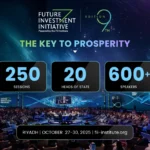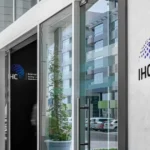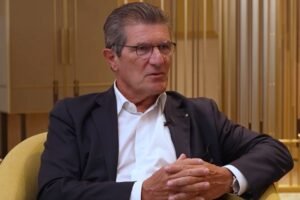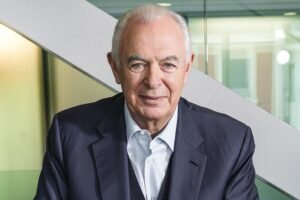Amwal Magazine had the opportunity to speak in Washington DC with young Arab American Foreign Affairs Advisor turned entrepreneur & businesswoman, Sarah Elzeini, who has been a champion of the power of connectivity. She recently established her company SMZ International Group coining the phrase, ‘connectivity is the ultimate sophistication.’ In this interview we learn about her new company, and her insights in the international affairs space where she has held several roles central to bilateral engagements with the United States and international players.
What is the biggest challenges faced to bridge misunderstandings between the Arab region and the US?
I think the United States has been almost exclusively focused on military in the region, making it the only area of sustained engagement that has transcended politics. I often wonder, what about sustained development economically and culturally –these two areas that are the pillars of prosperity? My experience is that the Arab World is open to create bridges with the United States, the people are excited about American pop-culture, education, and markets – in many areas they are reaching but the United States is reactionary when engagements are outside military. United States must adopt a more initiative taking mindset.
We are entering a new era where nations now have options, they do not have to choose just the United States, they can choose Russia, China, among many others. The reality is countries do not need to chase after the United States for their survival. It is important the United States project an interest to compete, an active engagement, meaningful investments, and true interest in what the region offers in thought. Dually, understanding that the United States is reactionary in areas outside of military, the Arab World needs to move from tactical engagements for short term political gains, to strategic partnerships that too endure American politics and administrations. The most important bridges are those that transcend politics, which we are deficient in.
How can you help enhance positive initiatives between the Arab region and the US?
My experience in both regions span multiple ideologies, political parties, and understanding. Through my previous positions I was able to understand competing thought and how to allow them to co-exist in my mind and in practice, finding the common ground between them became second nature. I like to believe that the people I associate myself with, bipartisan, both in the United States and internationally, are passionate, educated, good people looking to make positive impact. This brings them all together and allows us to find common ground despite our political differences. Because of learned insights from my network and experience on bilateral vehicles of engagement, I am able to create a space of common ground through activities I design, in areas that appear sensitive and seemingly impossible to reach.
We read your recent piece on the ‘Art of Business Diplomacy’ where you touched on US-China tensions and its impact on nations, with that the world seems to be more polarized between the US and China for example, will doing business also mean “choosing sides”?
It is no secret that United States and China tensions are rising, however doing business does not mean choosing sides. It means picking your battles strategically. For example, if we look at Egypt, they are engaged in trade with China, however they have deep ties with US Fortune 500 companies. For Egypt, it may be wise for them to diversify their business in both markets, to keep a balance between the two superpowers, but also for Africa. The United States just does not want to see institutional allies move 180 degrees to China, or to sense that their ally is no longer engaging with United States in a level-headed way due to China influence.
How can the Gulf region keep its relevance even as energy becomes less important?
In terms of commerce, the Gulf region can keep international relevance if they become producers while they can afford with energy profit. I think of the greatest countries around the world, and they have all become manufacturers of something vital, be that cars, pharmaceuticals, medical supplies, textiles, materials, developers in AI, the list goes on. Entrepreneurship is also incredibly important in maintain relevance, the youth’s efforts in creating local stores, restaurants, startups, should not be dismissed. It is vital for investors to help them scale up and franchise internationally. The youth and those in power can learn from each other.
In terms of strategic relevance, the region needs to work closer together in rebuilding and reconstructing stability, growth, prosperity for their children. The dismantling of the Middle East and North Africa was some of the darkest times in modern history, we witnessed historic libraries crumbling, antiquities stolen, UNESCO sites pillaged as was the case with the Roman theatre in Palmyra. Arab and Islamic history and its beautiful opulent engagements with the world are being erased. The Gulf region, is the most financially capable and relationally interconnected to great powers in the world, giving the Gulf region capacity to restore, reconstruct and rebuild something beautiful for the future. The Gulf region needs to work with each other not only on the Arabian Peninsula, but in the other countries where they are competing. Gulf economic competition in the greater Arab region is paramount, but it must be healthy and restorative, not dismantling. The Gulf can and should spare no effort.
Could you explain how the lobbying industry works in the US and its importance?
The lobbying industry in the United States is incredibly important. Lobbying is a vehicle in which a foreign government or entity can interact with the movers and shakers from grassroots to Presidential levels, to share their story, present their case, and hopefully build meaningful stronger bilateral relations and open new avenues of collaboration.
Tell us more about your company and the services it provides?
My company is centered on strategic activity, whether that be providing thought solutions through advisory or physical solutions, activities, that aid in building bridges that connect back to Washington. My company specializes in public affairs, government relations, strategic communications, and business development. Four areas that we have identified as being “roads” to Washington. My company supports allies – be that entities, concepts, or sovereign states – of the United States. I would like to be part of engagements that bring light, hope, and development.
My thought is that the 21st Century requires a connectivity that transcends politics and enables countries and their peoples to stay connected. When we disconnect –for whatever reason – our world becomes dark, and once we disconnect, we grow fearful when wanting to re-engage as we forgot how to navigate that once interconnected space. The key is to avoid this push and pull, this engage and withdraw, to find ways to always remain connected. I would like to think I play a role in that.”











